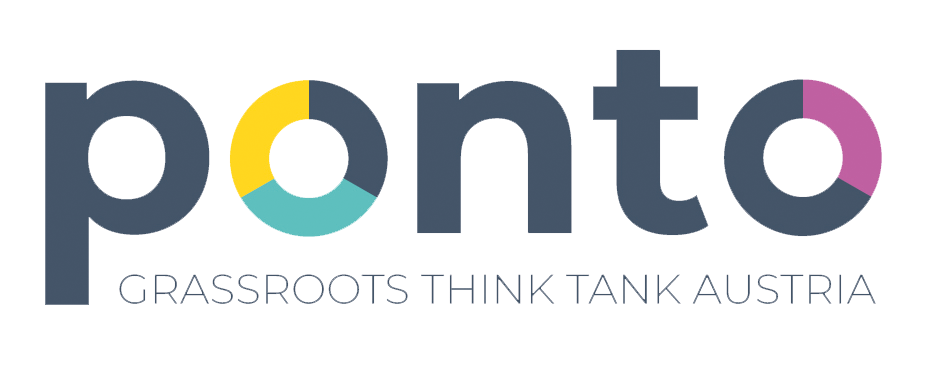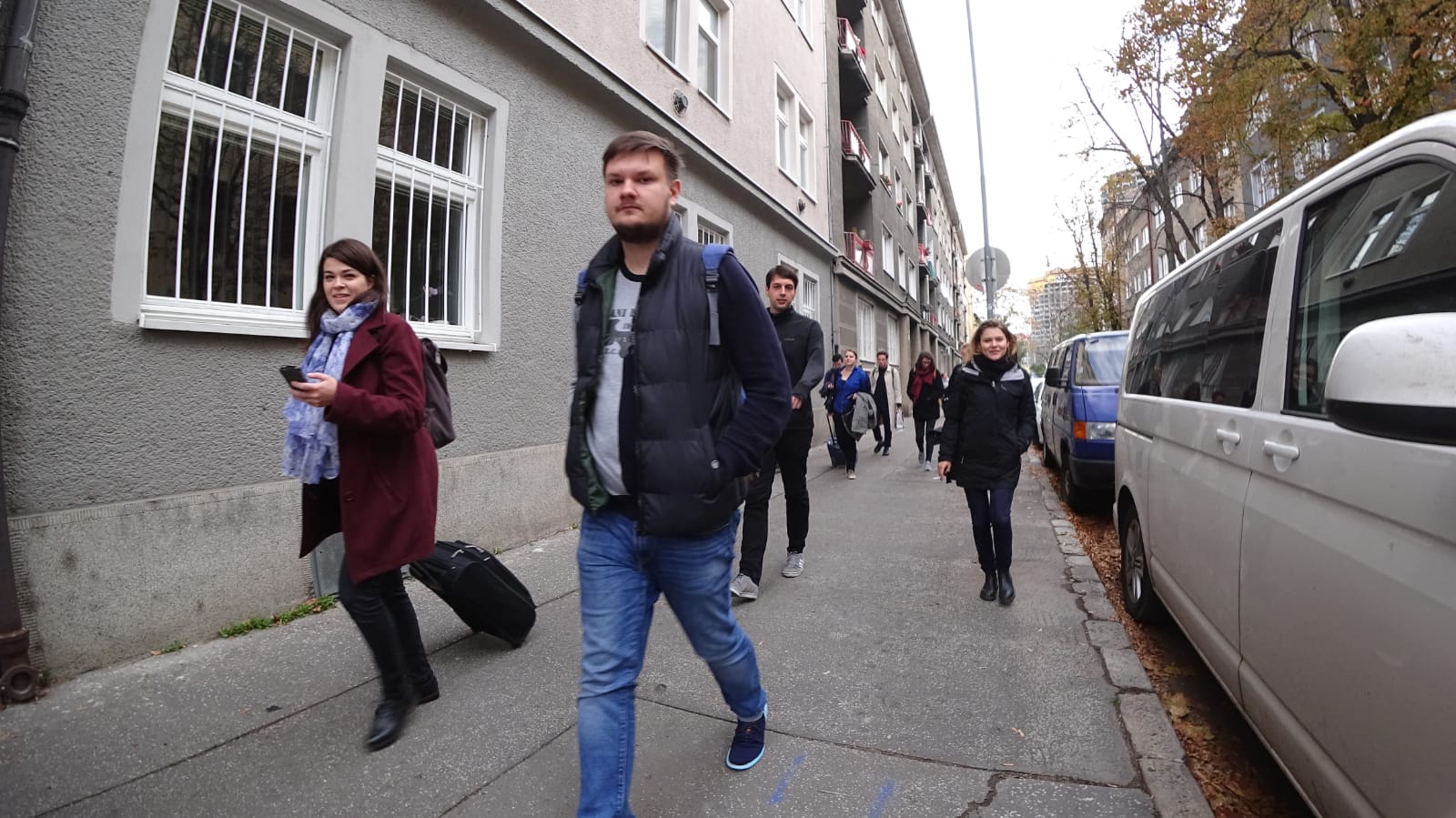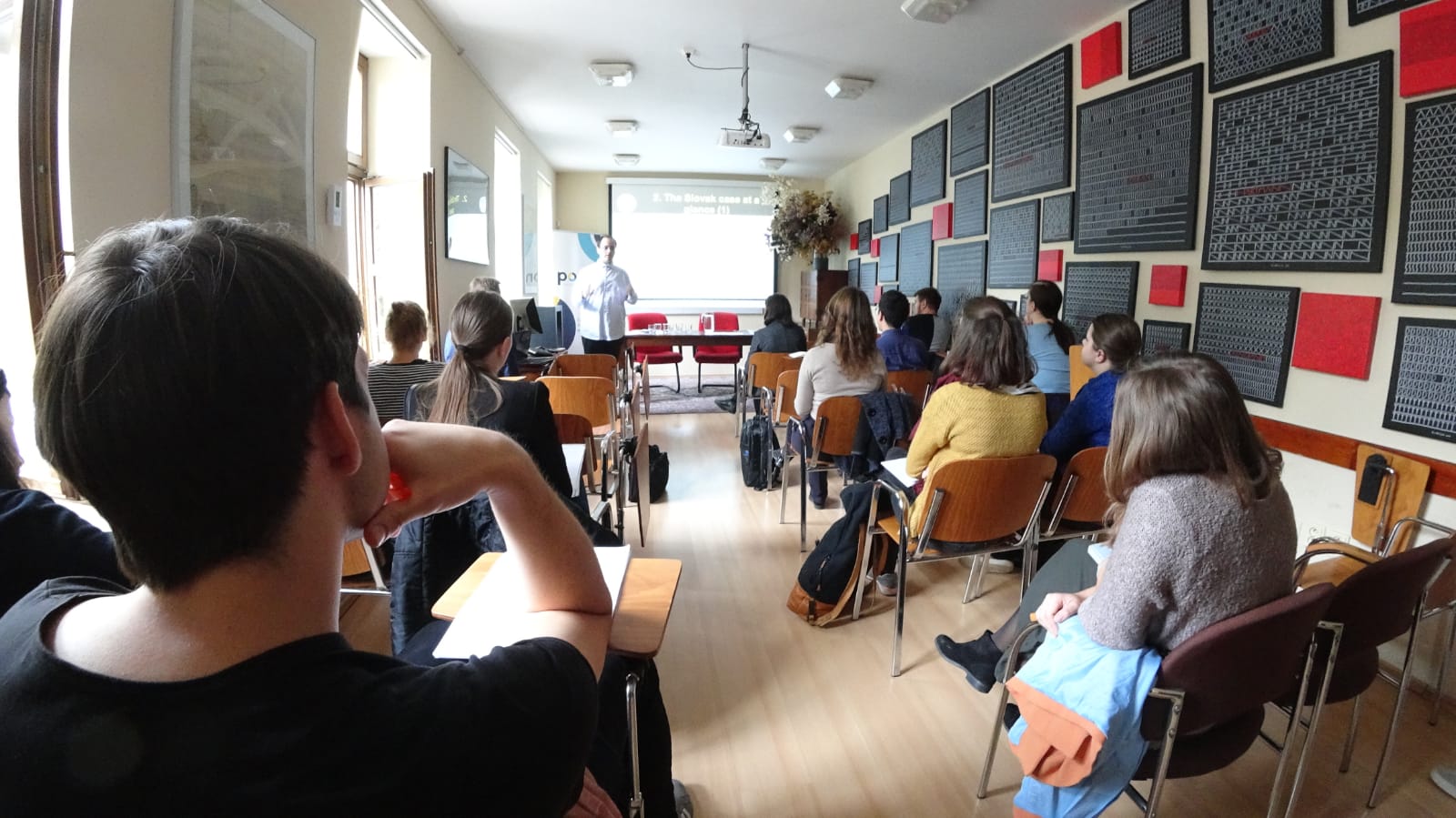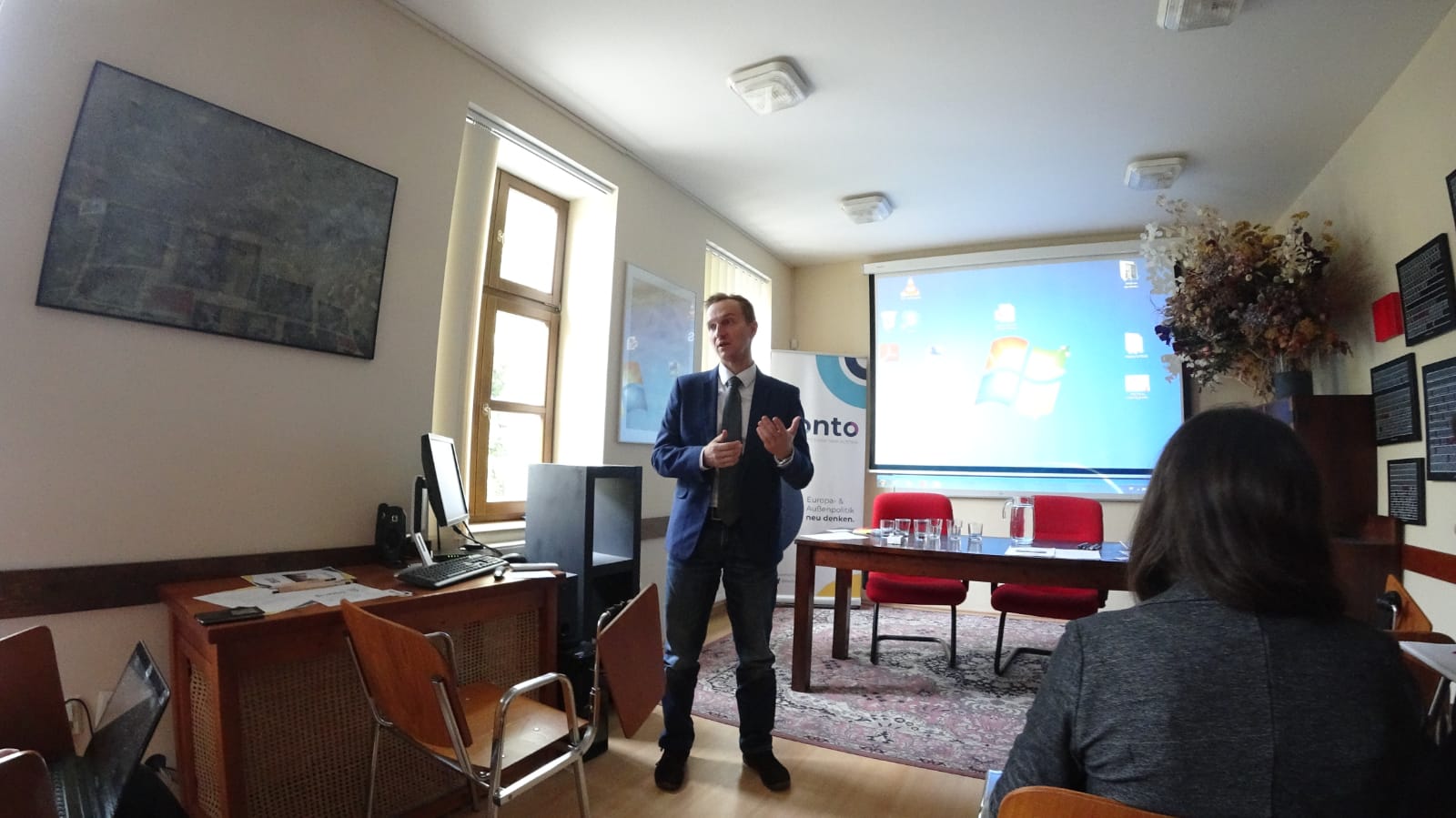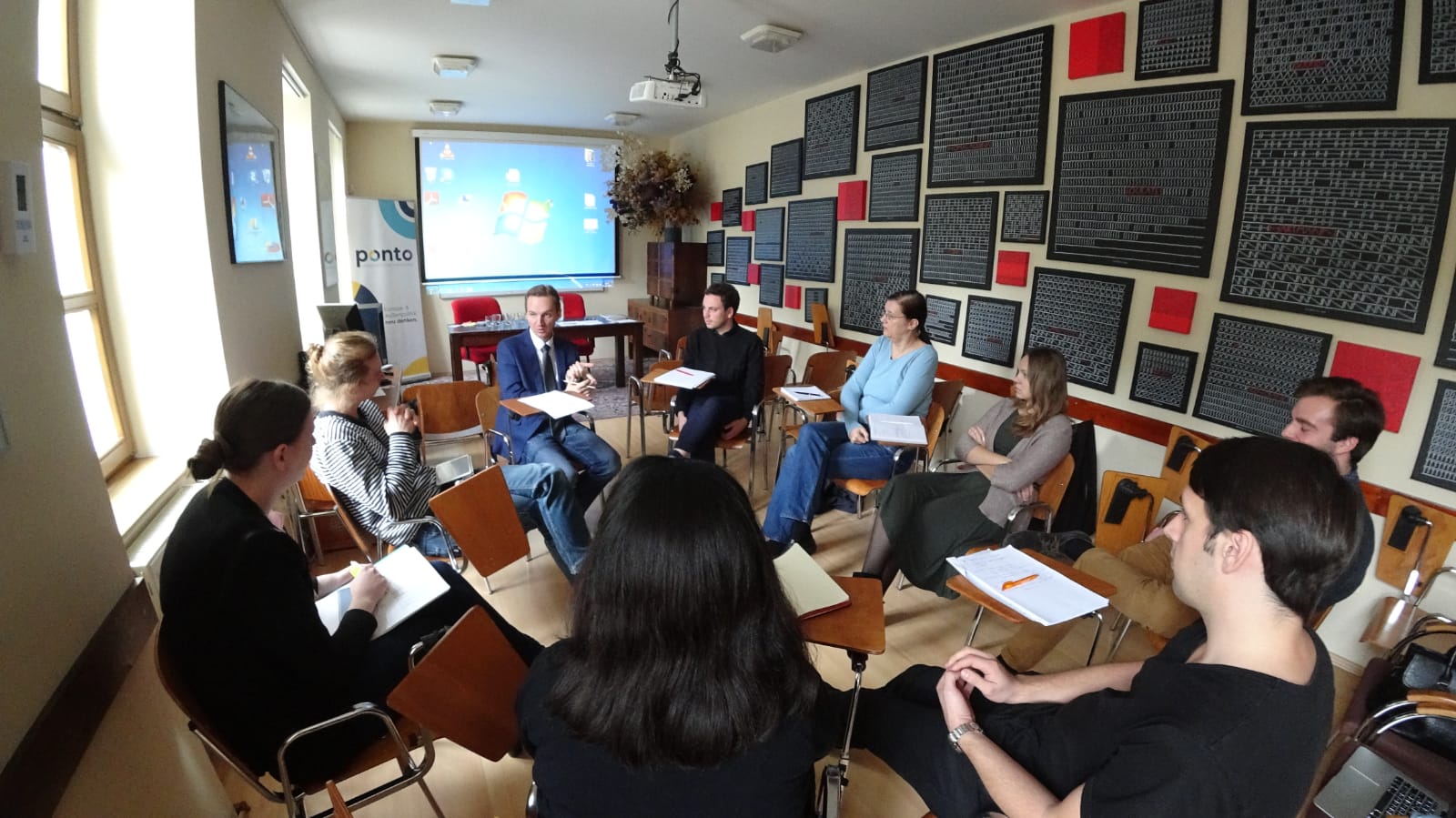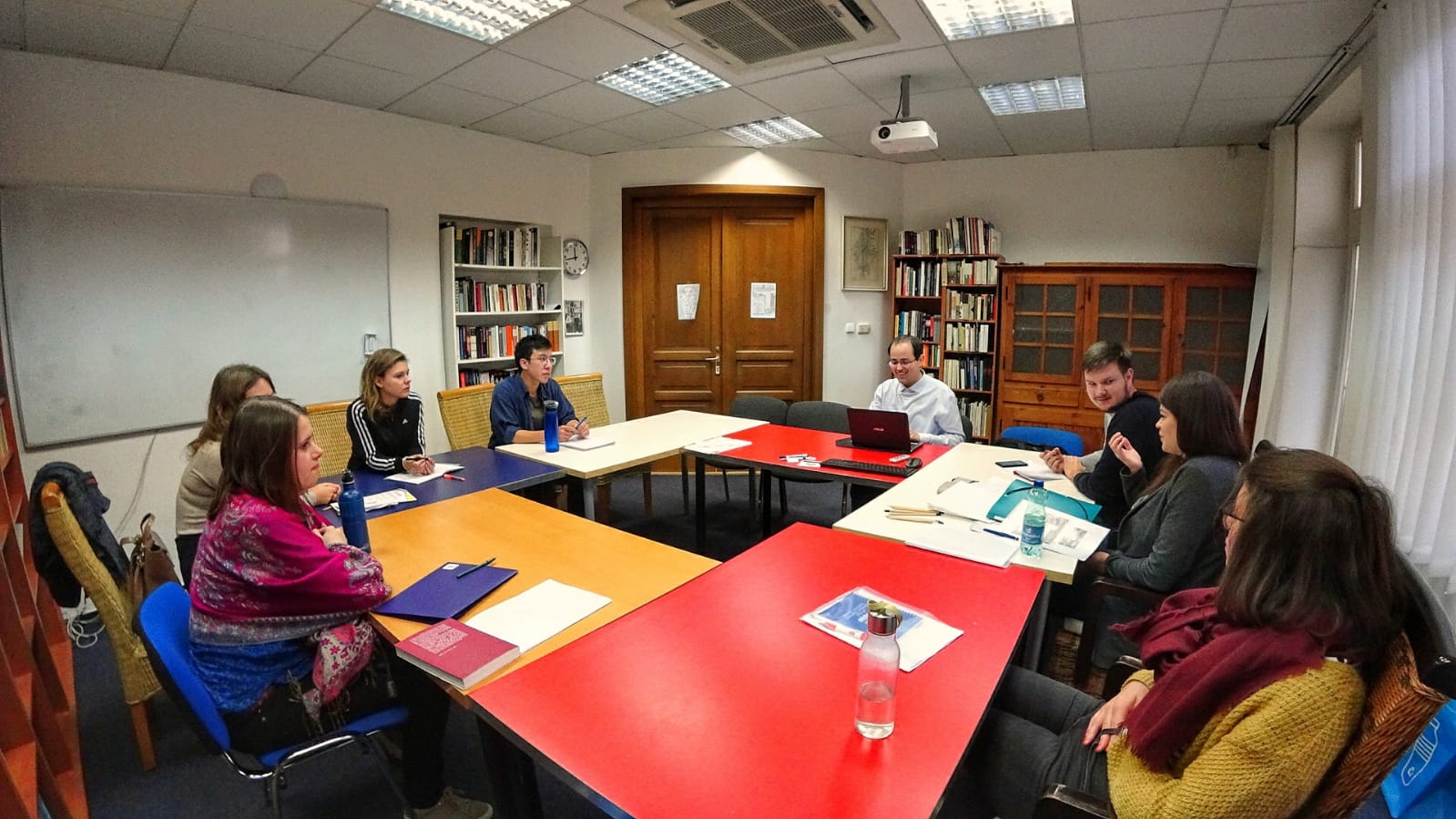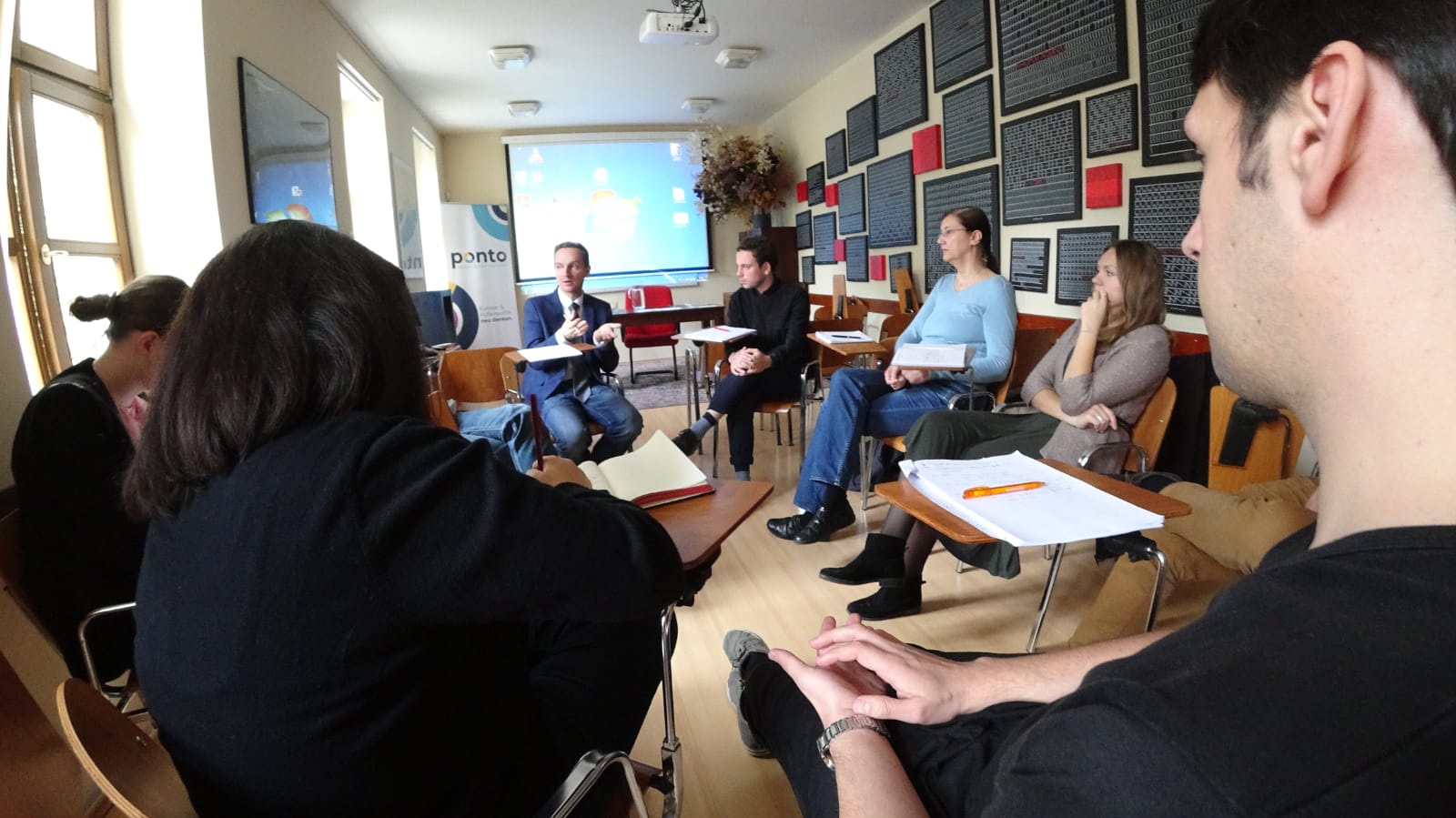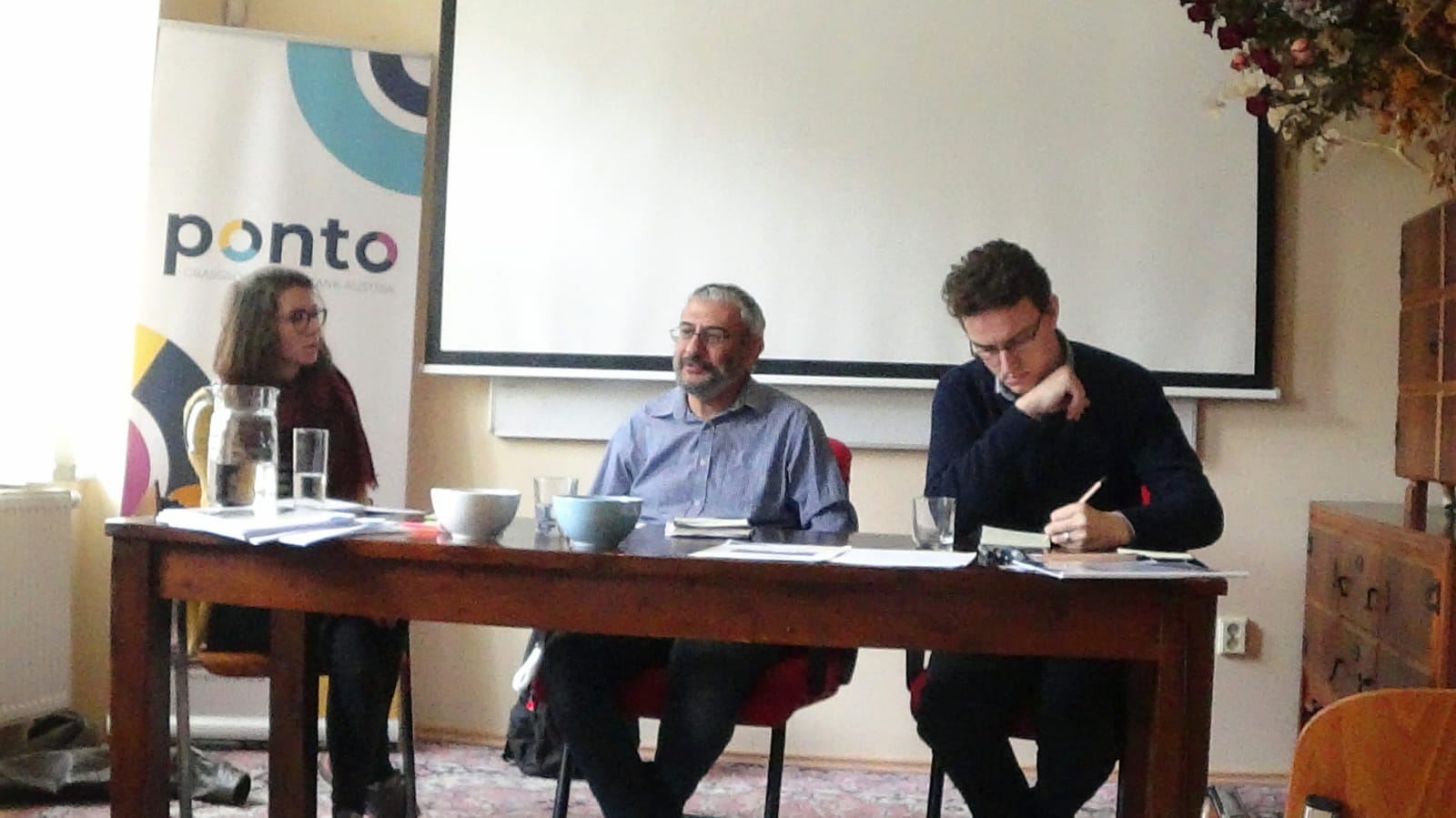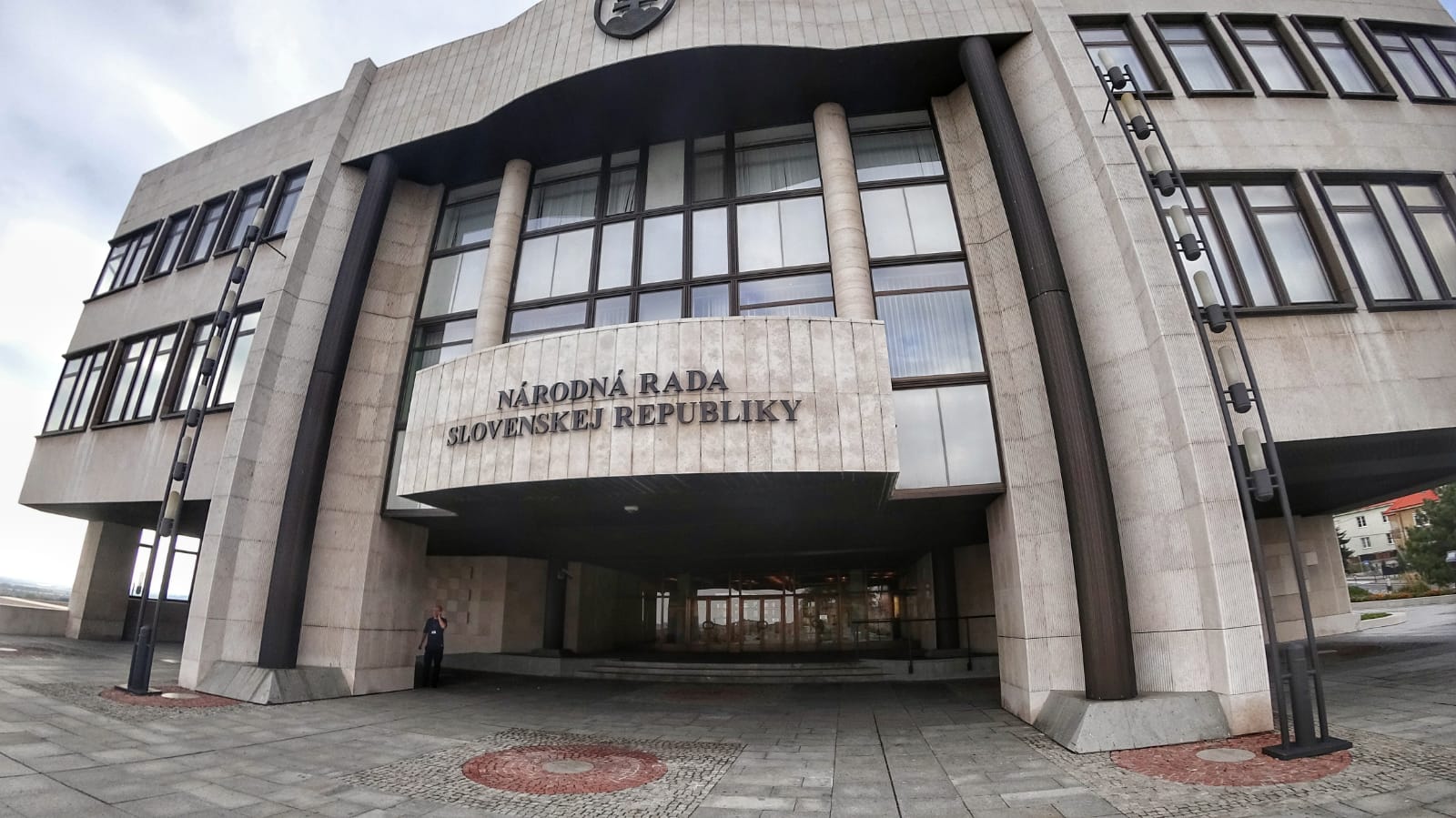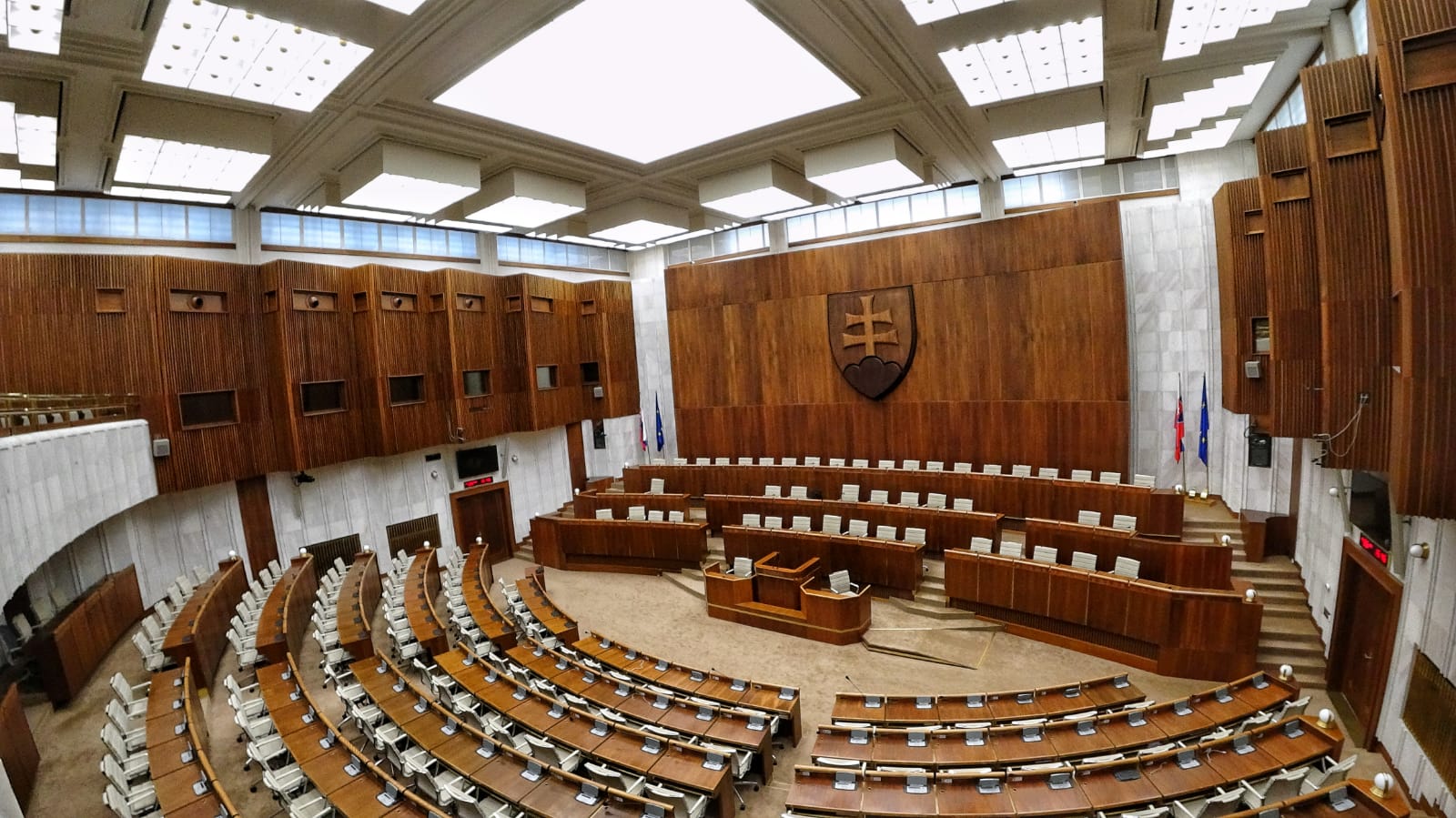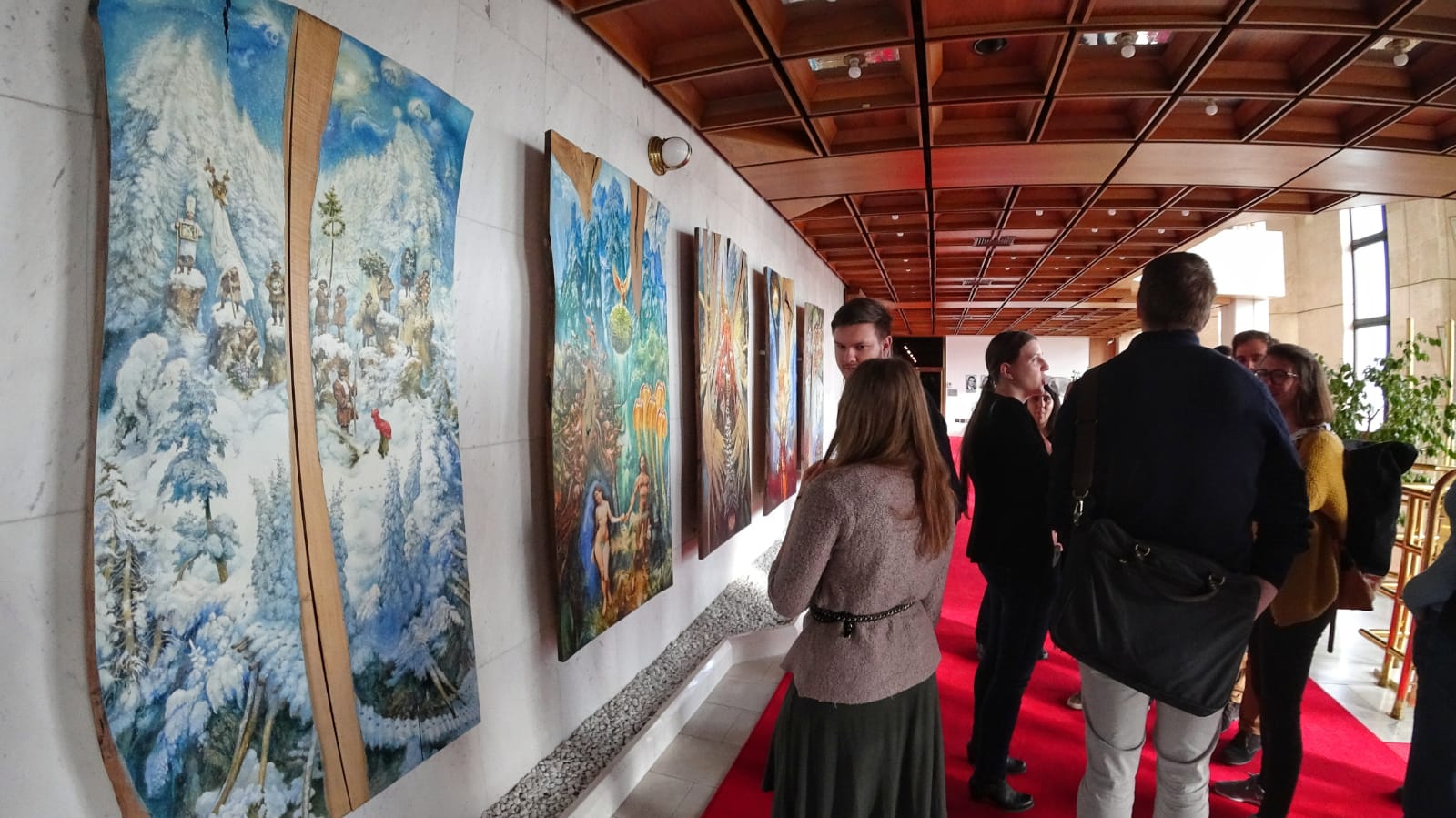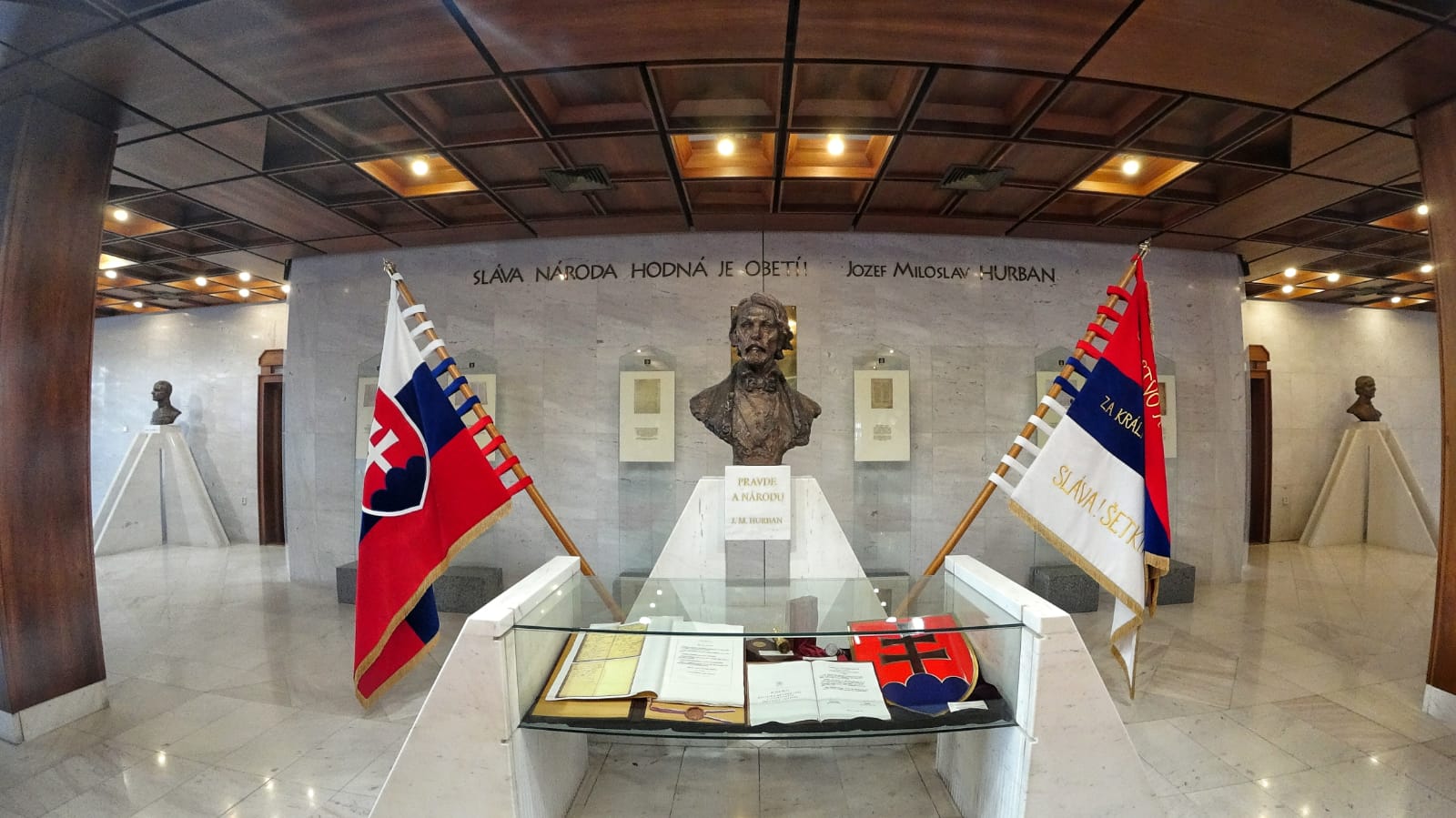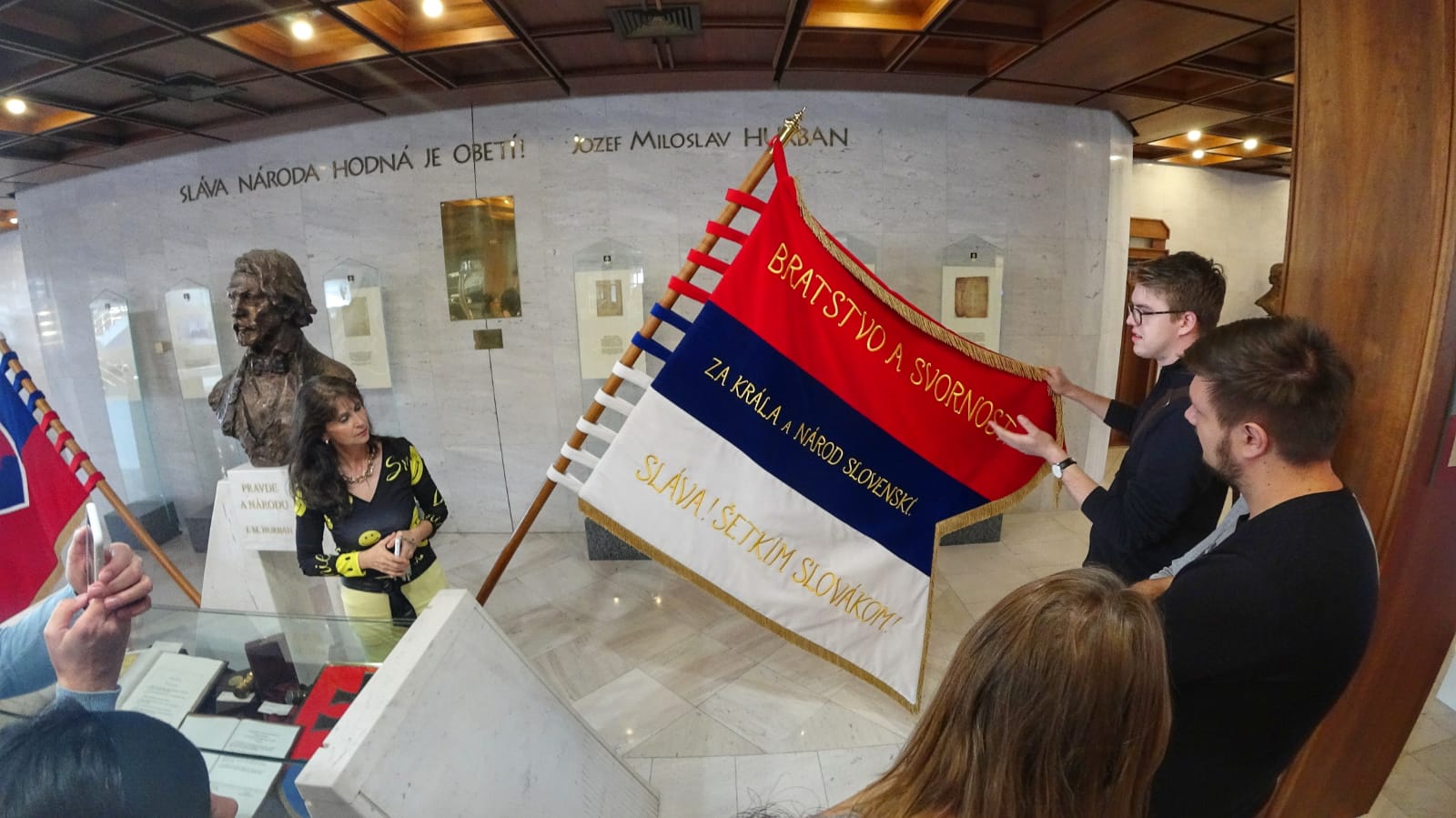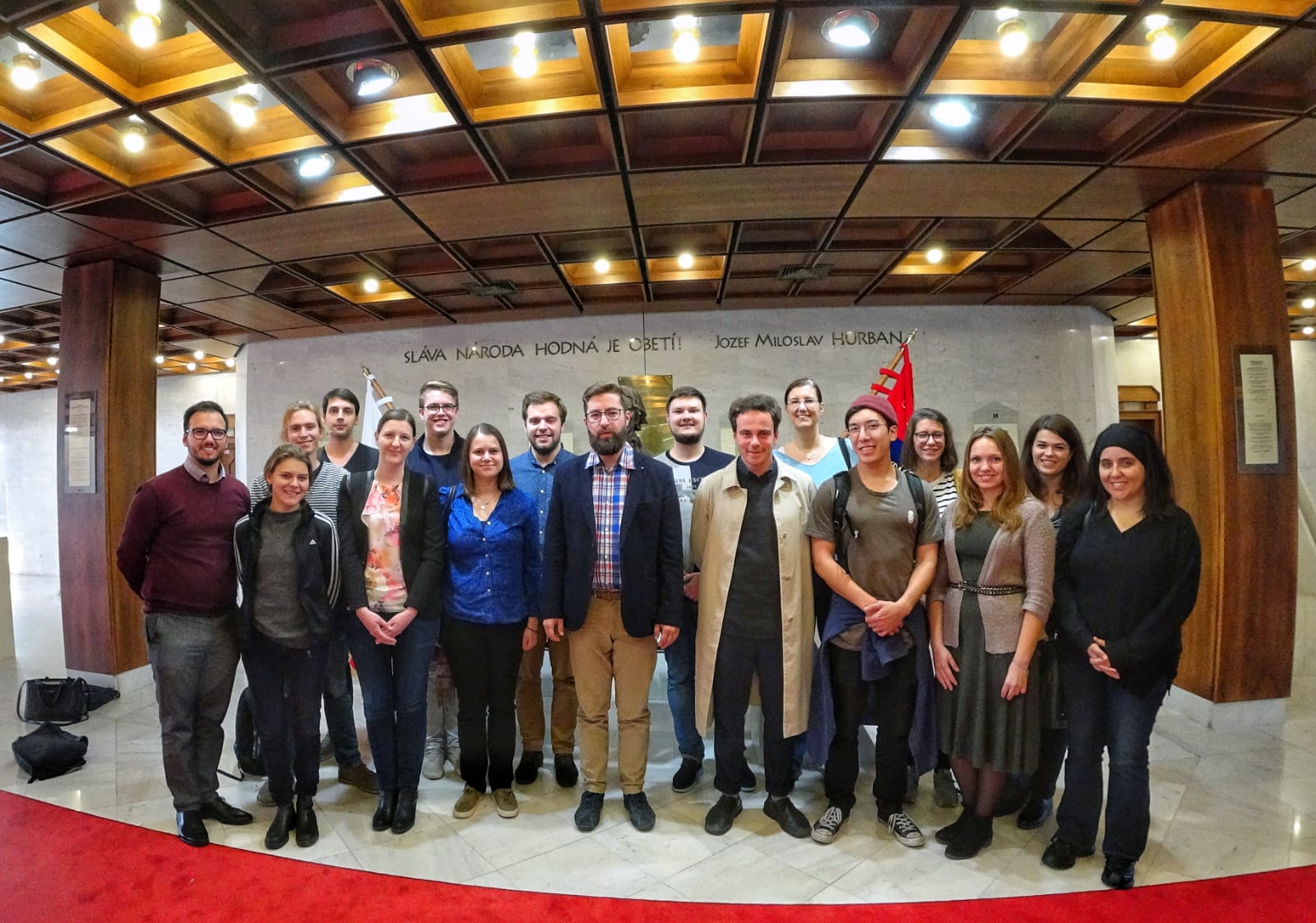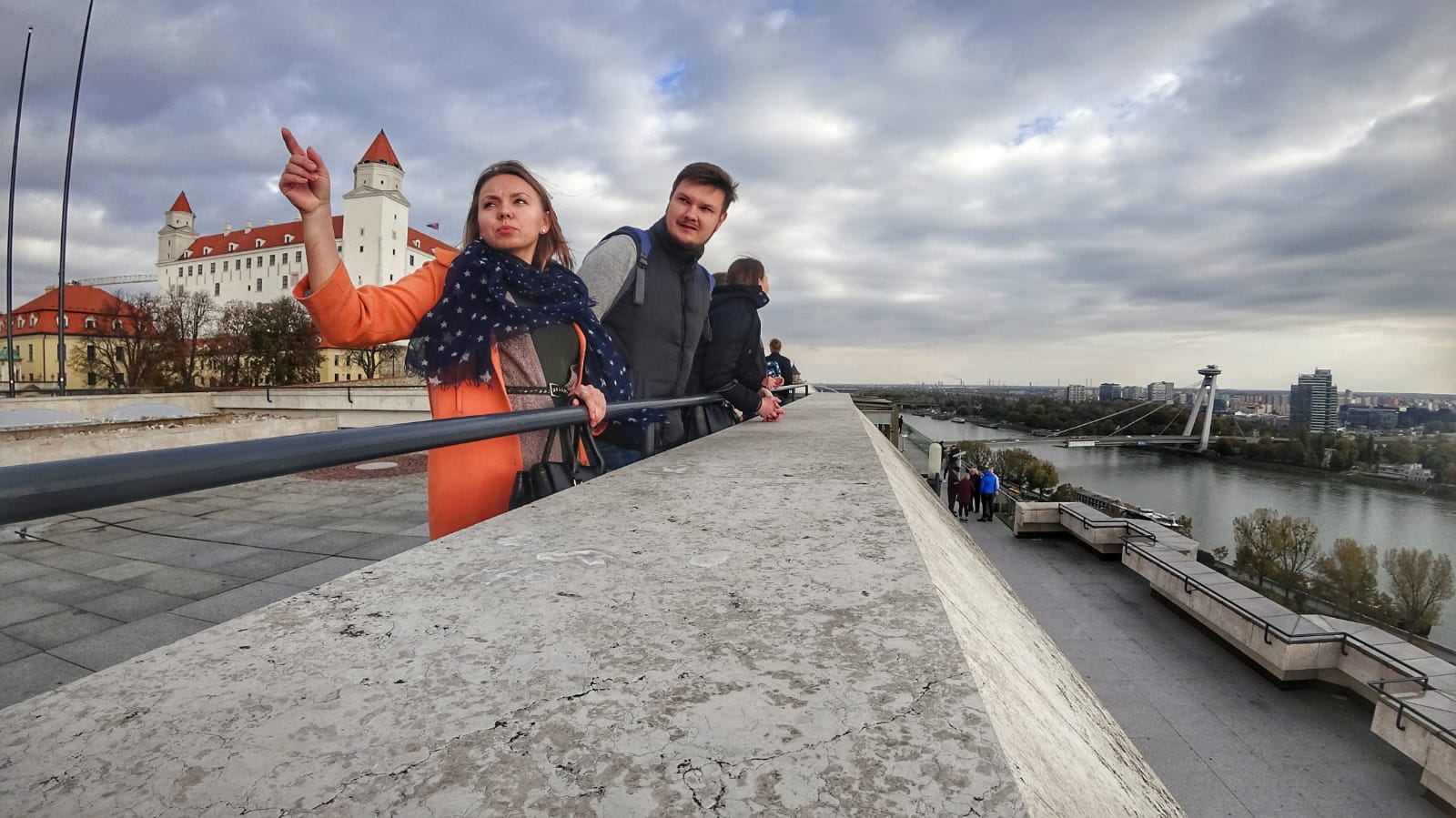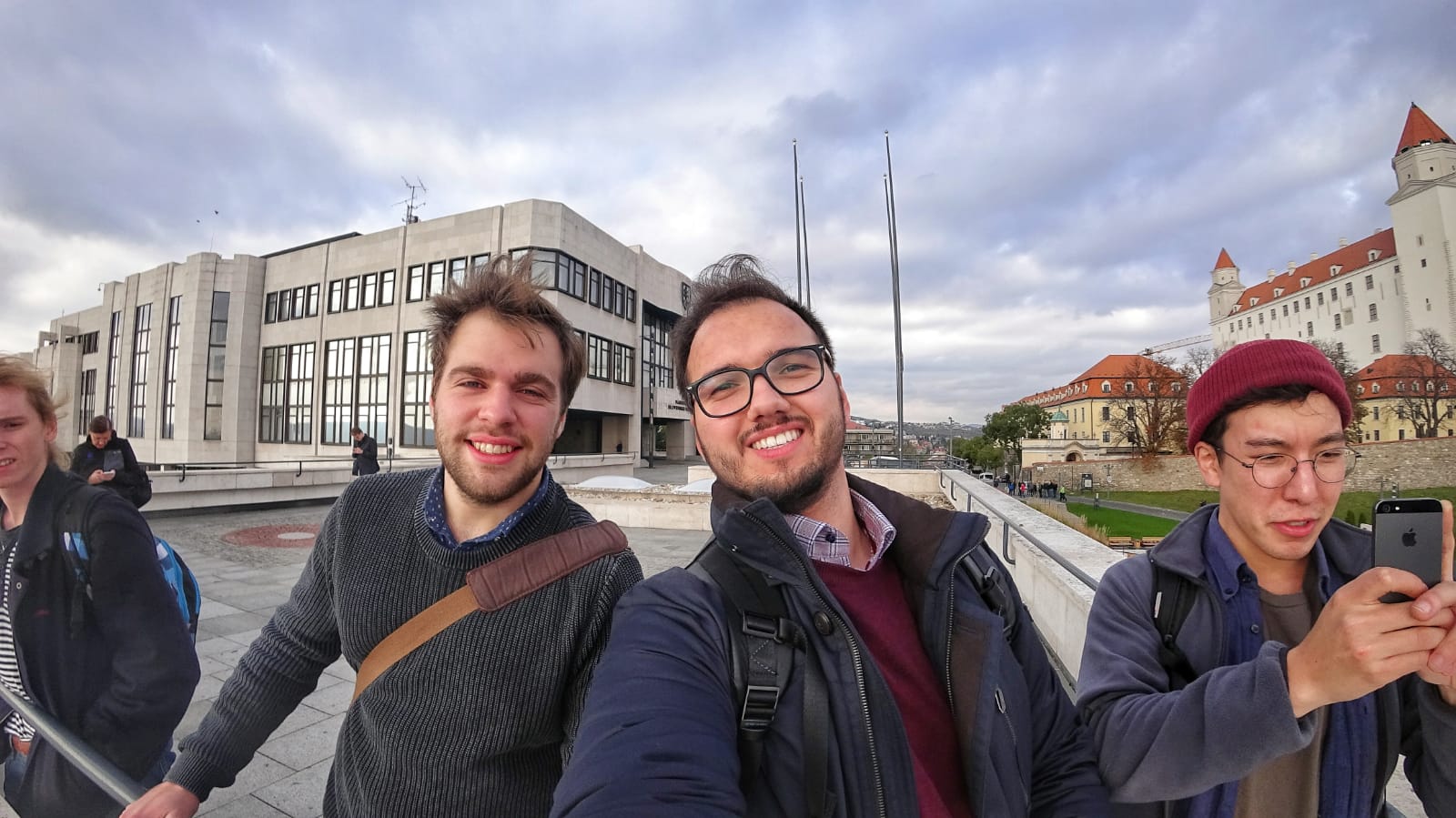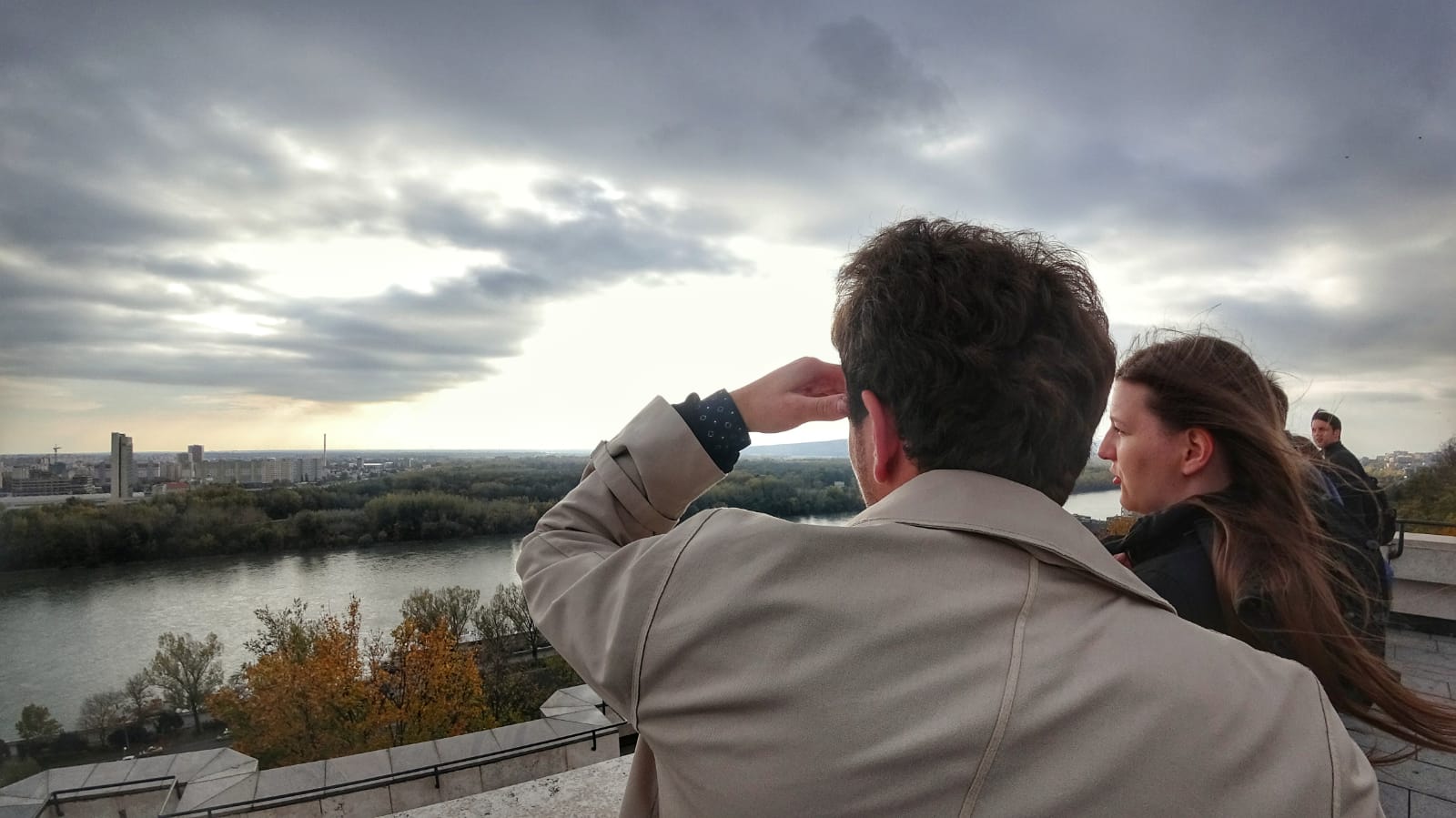On 26 October 2018, the Ponto team and around 15 participants headed to Bratislava in order to discuss the current “democratic challenges” in Slovakia. The murder of the investigative journalist Ján Kuciak and his fiancée in February 2018 triggered tremendous social protests which lead to the formation of the protest movement “For a decent Slovakia” (Za slušné Slovensko). In accordance with the demands of this civic protests, prime minister Robert Fico and the minister of Interior Robert Kaliňák stepped down in March 2018. This September, the Slovak police arrested the suspect murderer; however, many people assume that the real culpable individuals haven’t been detected yet. Due to this and the fact that the ruling trust-lacking elites haven’t really changed, the civic protests still continue.
Against these political developments, Ponto organized on Friday morning a workshop during which we discussed the issues freedom of media and rule of law in Slovakia. Max Steuer, a doctoral researcher at the Department of Political Science at Comenius University, gave a short introductory note on media freedom: He stressed that media freedom is not only part of the fundamental right of freedom of speech, but also an indicator for a democratic society. Furthermore, he argued that although Slovakia is an average democracy in terms of media freedom, it is crucial to be vigilant. As main problems he identified the prevailing “oligarchization” and “party colonization” of media as well as the threat of “alternative facts”. Also Pavol Baboš, assistant professor at the Department of Political Science at Comenius University, stressed the importance of freedom of media in his introduction on the concept of “rule of law”. According to him, “rule of law” should be understood in a broad sense, whereas it means the guarantee of equality before the law. In this sense, this term relates inter alia to corruption and general trust towards public institutions. In the following, the participants worked in two separate groups on these two topics and elaborated several key questions and arguments. These were then presented during an open discussion which was attended also by Grigorij Mesežnikov, a renowned political analyst and co-founder as well as president of the Bratislava-based Institute for Public Affairs (IVO), and Ondrej Podstupka, deputy editor-in-chief of the Slovak daily SME. The main topics of this discussion were – besides media freedom and rule of law – the current social protests and deficiencies in the Slovak party system. Ondrej Podstupka and Grigorij Mesežnikov claimed that the formation of a properly new party might be crucial. Moreover, Podstupka appealed in general that politics, civil society and media should all try to improve their performance in order to overcome the current rule of law crisis in Slovakia. And Mesežnikov warned that we are required to take any threat against democracy, especially in the field of journalism, seriously.
After a short lunch we had the chance to visit the Slovak National council. During the guided tour through the parliamentary building, we got an introduction into Slovak history and had a look at various national symbols and the assembly rooms. Furthermore, we met Martin Poliačik, Member of Parliament and currently member of the political party “Progressive Slovakia” (Progresívne Slovensko). Mr. Poliačik gave us insights about his personal career and his daily tasks as a politician.
Following the visit of the parliament, we were able to learn more about “Slovak Protest culture” during a guided walking tour through the old town of Bratislava. Our tour guide taught us about the social protests in the years 1968 and 1989 and showed us around the main sites of these events. This first excursion day then ended with a beer and traditional Slovak food in a cozy restaurant.
On the second day of this Bratislava excursion, we had an informal discussion with Táňa Sedláková, one of the main organizers of the protest movement “For a decent Slovakia”. Táňa explained the relatively spontaneous emergence of this protest movement, which still operates as an informal network of young people on a voluntary basis, and her motivation for participating in it. Furthermore, she outlined the main challenges she faced during the organization of the protests such as steady surveillance by the secret service. After this highly interesting and moving talk, we headed back to Vienna with a lot of impressions and new insights on the current political developments in Slovakia.
Ponto plans to organize similar excursions in the future and is always looking for helping hands. We highly welcome individuals who are motivated to set up our future trip which will offer an opportunity to learn more about current political developments in a European country.
